On a gloomy Saturday afternoon in early May, the Canaan Fire Department shut down Route 2 in Canaan for a steady procession of tractors, dump trucks and vintage farm equipment. Up front was Karen Clark in a 1979 R model Mack truck. The Mack had been sitting in a field awhile — seven years, she figures — but she made sure it would start and had given it a good wash because her dad loved the “iron.” This particular truck, one he’d used in the 1990s, had been his pride and joy because it never broke down.
Her father’s ashes were in a red urn on the front seat next to her. The tractor parade to Fairview Cemetery, nearly 30 vehicles strong, might not be what you’d expect for a dairy man of steady modesty, but Richard Arthur “Butch” Clark had been hauling milk on these roads since 1968 and a driving tribute seemed in order. “This is Dad’s life,” Karen Clark said.
Her Aunt Kathy, Butch’s sister, agreed. “That’s our redneck send-off,” Kathy Quirion said. “Those are the kind of people he touched. Truck drivers and farmers and people with tractors.”
The guys from the fire department hardly needed to shut down traffic. Pretty much everyone in town knew that this was Butch Clark’s funeral, knew who he was, why he mattered. Even the kid pouring coffee at Dunkin’ Donuts up the street had worked on the Clarks’ dairy farm for a while. Everyone agreed that it was awful that he was gone, this man who made sure milk got from farm to dairy, 365 days of the year, in a business where the person who moves milk has to be as reliable as the sun coming up or a cow needing milking.
Because he also produced milk on his own small dairy in Canaan – a herd of 200, 60 of them milking at any given time – he perhaps felt that imperative of reliability more keenly than most. Butch Clark was the ultimate milkman.
* * *

Butch Clark was the ultimate milk man, producing it at his own small dairy in Canaan and hauling it from farm to dairy 365 days a year.
Snow, ice storms, sweltering days, rainy days, glorious days to lie in a hammock, weekends – doesn’t matter. The milk has got to go.
Butch Clark had been moving milk for five decades. He’d grown up with a handful of dairy cows and a father and uncle who hauled milk for a living. As a young man he’d been drafted just as the Vietnam conflict was gearing up. When he came home from two years in the service, he took a job as a salesman for Canadian Chains, driving around New England. He was on the road selling chains to farmers and truckers when his father suffered a fatal heart attack at 53. His Uncle Bertrand needed him then, to join the family business, and Clark stepped up. He was 21.
A year later, he married Pam Corson, a girl he knew from down the road. A year after that, he bought the business from his uncle and named it Clark’s Milk Transport. It was a one-truck business then, but over the decades, he’d grow it to six, seven tractor-trailers on the road, crisscrossing Maine. It didn’t take him long to develop a reputation for no-nonsense reliability. If another hauler decided it didn’t make financial sense to go out of the way to pick up a small load from some dairy farmer with under 20 milking cows, Butch Clark would send a driver that way.
A small farm might hold milk for a couple of days, waiting to have enough to fill a truck, but for the sake of freshness and safety, the milk has to be at the processing plant quickly. And of course, cows don’t stop making milk just because there’s a full tank in the milk house. It’s a point of pride for Maine farmers that milk gets from cow to farm to processing to grocery within 48 hours.
You hear a lot about the declining dairy industry in Maine. On the one hand, it’s true. At the turn of the 21st century, there were 500 dairy farms in the state. Today there are 243. But in 2016, Maine farmers produced a record amount of milk, nearly 73 million gallons, according to the Maine Dairy Industry Association. The big dairies have grown and become more efficient, and the industry tends to favor them. Thus, the 80 percent of Maine dairy farms that have fewer than 150 cows are often hanging by a thread. For some of them, the thread was Clark’s Milk Transport, connecting them to the buyer.
The job was 24/7, but Butch and Pam Clark occasionally got away. “He didn’t like leaving the trucks or the cows,” Karen Clark said, but he did it to make his wife happy. They’d taken their children on vacations when they were kids to Florida. They had gone on some cruises, to the Bahamas. On their 25th anniversary they went to Hawaii.
They had three children, Karen, Bertrand and Monica, who came along in 1983 when the others were practically teenagers. Monica was born without a spleen, which didn’t matter until an infection came along; the body’s defense to fight it was compromised. In 1998, Monica developed a tough strain of pneumonia and died within a day. “It was overnight,” Karen Clark said. “I call it ‘my disaster.’ ” It was her parents’ as well, and it renewed their faith in religion. They grieved through work, through milk runs and early mornings. They got a dog. They didn’t stop because they couldn’t stop. The milk has got to go.
* * *

Butch Clark grew the family business from a one-truck operation to six or seven tractor-trailers on the road at one time, crisscrossing Maine.
Technically, Butch Clark was retired and had been for eight years. Yet he was a man of routine, and that routine was work. His days still started the same way: early. He rose by 2:30 a.m., having eaten an early supper, watched the news and been in bed by 7 p.m. the night before. “Right on the money,” Karen Clark said. It’s the only way to beat the sun to work. “Get up, daylight is burning,” was one of his sayings, often directed at his grandkids. He’d even say it to Karen, though she worked with him and was up by 5 a.m. herself.
Pam Clark always rose with her husband, her daughter said. (Pam Clark spoke to the Maine Sunday Telegram only briefly, preferring that friends and other family tell his story.) She’d send him off with coffee and breakfast snacks, maybe Ritz crackers with peanut butter. They were partners in the business, her doing the bookkeeping, him the scheduling and driving. Before she went back to bed every morning, she packed a lunch for her husband, too. Vienna sausage, ham salad, egg salad, a banana, pudding. Whatever she had. Leftovers. His daily vitamins. Not so much milk these days; he used to drink a gallon of it a day, raw, but as a man who had turned 70 on Jan. 6, he’d had to ease up on that for health reasons. He would put on his Agri-mark hat and head down to the “office,” Flood Brothers Farm in Clinton, arriving by 3:30 a.m.
Flood Brothers is Maine’s biggest dairy farm and sends at least a truck a day to be processed. Drivers collecting milk from other smaller farms might stop off there to have their loads topped off; it’s most efficient to deliver a full load. Hence, the Flood Farm being Clark’s office. “He was a fixture,” said Jenni Tilton-Flood.
There, he’d manage the schedule for his other drivers, a constant maneuvering to see who needed what picked up and when. He liked the quiet, the hours before light. It suited him, a man who never made a drastic decision. “That was his time to think,” Karen Clark said.
His nod to retirement was that he no longer drove out of state (Clark’s Milk Transport brings milk to processors in Massachusetts) and mostly he’d just take loads from Flood to H.P. Hood in Portland. Occasionally he would swing by other farms to make pickups, the way he had for most of his career, backing the truck in and starting the routine of pumping milk from the milk house to the tanker, chatting with the farmer as he did so. That’s how he met one of his best friends, Raymond Reitze, back when Reitze was running a dairy in Canaan in the early 1980s. They’d just started talking and before you knew it, Reitze was part time driving for Clark and they were building a barn together. Fixing things. Discussing their shared love of trucks. Agreeing not to go looking for things that were broke, because on a farm, the broke things will find you.
“In 37 years, Butch and I never had a word, not one time, ever, between us,” Reitze said. “No matter what happened, there was never one.”
It made sense to Reitze that Clark’s retirement wasn’t exactly restful.
“Who wants to retire and do nothing?” Reitze said. “Doesn’t seem like a good idea.”
* * *
The morning of Saturday, Jan. 14, Clark had a delivery to make to Hood in Portland. He made a call to Pam to let her know his plans; he’d be at Hood by 10:30 a.m. It was below freezing but clear, with a weak winter sun overhead. Easy driving. Clark put the phone away. He hated the thing. Whatever happened to a phone on the wall with a cord? he’d say. But it was necessary to have it, just in case.
He sat tall in the red cab, looking out through a windshield he kept cleaner than clean, lifting his hand in greeting when he passed someone he knew on the road, not so much a wave as an acknowledgment. The tanker he was pulling had an 8,000-gallon capacity, which made for a heavy load.
Clark was on Interstate 295, less than 20 miles from Hood. For six years, the first person he’d been greeted by at Hood on a daily basis was Don Fickett. Wearing a full body harness, Fickett would lower himself from a catwalk onto Clark’s truck. He’d take samples from the tank, which would have been sealed for safety the day before on the way out of Hood.
A milk hauler is part of a dairy farm family, says Julie-Marie Bickford, the executive director of the Maine Dairy Industry Association. They are also part of the processors’ family, an integral part of a food chain in which consumers’ lives depend on safety. “It’s not just driving a truck,” Bickford says. Haulers are, for that transition from farm to dairy, taking “custody of the purity.”
There is time to kill, usually an hour or so, while the creamery’s lab processes the samples to make sure the milk is safe, hoses get cleaned and then the milk gets pumped out of the tanker. Time to talk. Despite a 30-year age difference, Fickett and Clark had taken to each other from the get-go. They discussed the business, trucks, life. About how Clark had nearly gone to Vietnam, almost shipping out twice and getting lucky both times. About how his father’s early death had turned him into a patriarch at 21. “I learned how little decisions can change things,” Fickett said.
Fickett had a hobby that made Clark shake his head in wonderment; he and his identical twin brother take a week off every year to go chase tornadoes. Clark had seen tornadoes back when he was in the service and stationed in Texas. You wouldn’t find him chasing the things, but he enjoyed hearing about how much Fickett liked it. They talked about farming – Clark making Fickett curious enough that once he drove up to Canaan to see Clark’s dairy. Pam Clark served him a big breakfast. It was, he said, just like in the movies, this hardworking, decent, homey farm life he was witnessing.

Friends and family gather together before a truck and tractor brigade through Canaan before the funeral for Butch Clark.
One time, Fickett was trying to figure out what to do with an old pickup he’d gotten tired of fixing. Butch Clark opened his wallet and took out $300; he’d buy it from Fickett and use it around the farm. Sight unseen, “only because I know how much work you put into it,” Fickett remembers him saying.
On Jan. 14, chances were Clark would not have seen Fickett, even if he’d made it to the creamery. The younger man had recently gotten a promotion and was now in charge of inventory, so he saw less of Clark. They caught sight of each other here and there, and Clark always made a point of telling him he wished he’d come back to receiving. Not that Clark couldn’t talk to whoever was in the harness, but when you do a job yourself for nearly 50 years, you enjoy the particular competence of others.
Clark’s red Mack truck was just north of exit 22, in the travel lane, when a blue Toyota Corolla driven by Ashley Williams of Woolwich struck Clark’s side of the tractor-trailer. The Corolla had bounced off the guardrail 100 feet back and spun clockwise across the travel lane and into Clark’s truck. Williams, 27, told Maine State Police she’d lost control of her car after being cut off by another vehicle. “There were other witnesses in the area who kind of indicated that that was a possibility,” said Lt. Walter Grzyb. Neither Williams nor Clark was using a phone, nor was there any indication either was speeding.
The Corolla went to the right, into the highway, and Clark’s 100,000-pound truck went to the left, toward the median and out of traffic. The cab rolled over on top of the guardrail and separated from the tanker, which slid down the road sideways. Williams was banged up but not seriously injured. Clark died at the scene. The investigator told Grzyb the accident could have been much worse.
Did Clark steer that truck to save the life of the driver of the Corolla, or anyone else on the road? “Whether he had the state of mind to take some driving actions that resulted in the way it turned out or if it just happened on its own, there is no way to know for sure,” Grzyb said. “But based on the things we’ve heard about his character and everything, it certainly would be possible.”
His best friend thinks so.
“I can only tell you an opinion,” Raymond Reitze said. “Butch would never hurt anybody, and it is obvious with what he saw in front of him that he had to make a decision. The only decision he had was either to hit her or leave the road. And so he left the road.”
* * *
Traffic stopped on I-295. People took pictures of the crash. It was spectacular that way. Milk spilled on the highway. Another driver from another milk hauler was about a mile behind Clark, saw the truck and started to spread the word. At Hood, there was a commotion as people did the math and saw that Butch Clark had not shown up. Someone put a picture of the crash on Facebook, which is how Karen Clark knew there had been an accident. “I knew it was our truck before I knew it was our father,” she said.
Kathy Quirion’s daughter saw something on Facebook and called her mother: “Did something happen to Uncle Butch?” She called her sister-in-law Pam, who could only say for sure that she knew someone was dead and that Butch was not answering his phone. There were hours of not knowing where one might hope. And then there was absence.
For a practical woman like Karen Clark, who had worked alongside her father the planner, the scheduler, there were phone calls to be made about the milk. One of Clark’s trucks would not be driving tomorrow, one of those drivers would not be driving tomorrow. Who would pick up tomorrow’s milk? She started to call in favors. But already the dairy network was responding. One of Clark’s competitors, Lyle Peirce trucking of Newport, offered drivers to fill in. Flood Brothers would send some employees over to help with driving, as well as at the Clarks’ farm.
Karen Clark is tough but was shaken when she got to the lot in Cumberland where police had had the wreck towed and saw the crushed metal of the red cab. She was there to pick up paperwork; they’d need to deal with insurance, with replacement, with moving on. She found her father’s Agromark hat and brought it home. She thought about what it would have been like for her father if another Clark driver had been behind the wheel. “I don’t know how to say it, but it was a weight off your shoulders knowing that we didn’t have to go tell someone else’s wife.” She thought about what it would have been like for her father if his truck had killed Ashley Williams. How it would have broken him. How he might have thought, in that split second, facing death himself, of the young driver of the blue Corolla, ” ‘She hasn’t had time to live and I have.’ ”
* * *

A marker and the Stars and Stripes testify to Butch Clark’s passing. Struck by a Toyota Corolla on Interstate 295 in January, Clark’s 100,000-pound milk truck turned into the median and away from traffic. Clark died at the scene.
At the family plot at Fairview, Butch Clark’s little Yorkshire terrier, Michaela, trembled at the end of her leash. There were so many people around, farmers in their better flannels, hunters in their camouflage jackets, truckers in their hats – so many people that Butch Clark had waved to along the roads. But none of them were Clark, the master she still looks for. Pastor Kevin Brooks talked about the four areas of life that defined Clark: family, farm, friends and faith. He spoke about how Clark would loan anyone anything, show up at any time of day to help with a problem.
Every word spoken reflected the character of the man, the way he’d approached life with integrity and dignity and kindness. There was not a lot of pity dealt out, because that was not the way. It’s like when a dairy farmer had given up his cows and was no longer on the route, and maybe Butch Clark was sad about that but there was still a job to do, elsewhere. You didn’t dwell on things you couldn’t change. Clark’s death was like that. A good life, ended tragically.
“It’s not that there isn’t a grieving process,” Reitze said. “There is. But you don’t stop and look back all the time. The hay is coming in, and the cows need to get milked. Not that you don’t look, when the man comes to get the milk and backs up to the door, you always check.”
Everyone, save perhaps the big man’s little dog, knows this and has known it since the day he died: Someone else will come get the milk. Because the milk will keep coming. And it will still need to go.
CORRECTION: This story was updated at 10:06 a.m. on June 20, 2017 to correct the name of the logo on Butch Clark’s hat.
Mary Pols can be contacted at 791-6456 or at:
mpols@pressherald.com
Twitter: MaryPols
Send questions/comments to the editors.


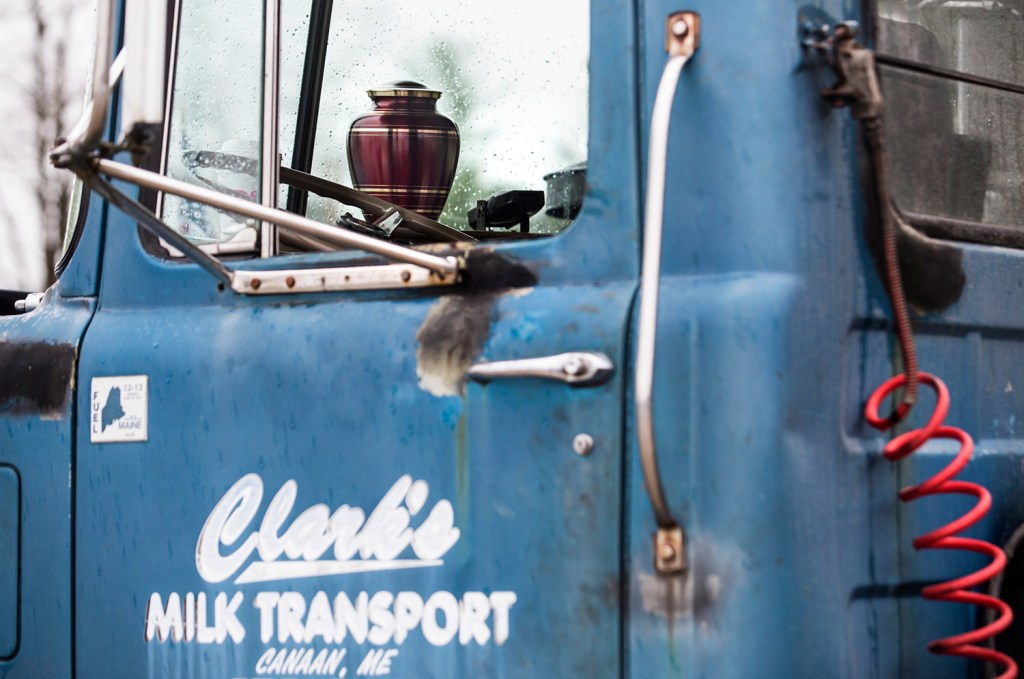
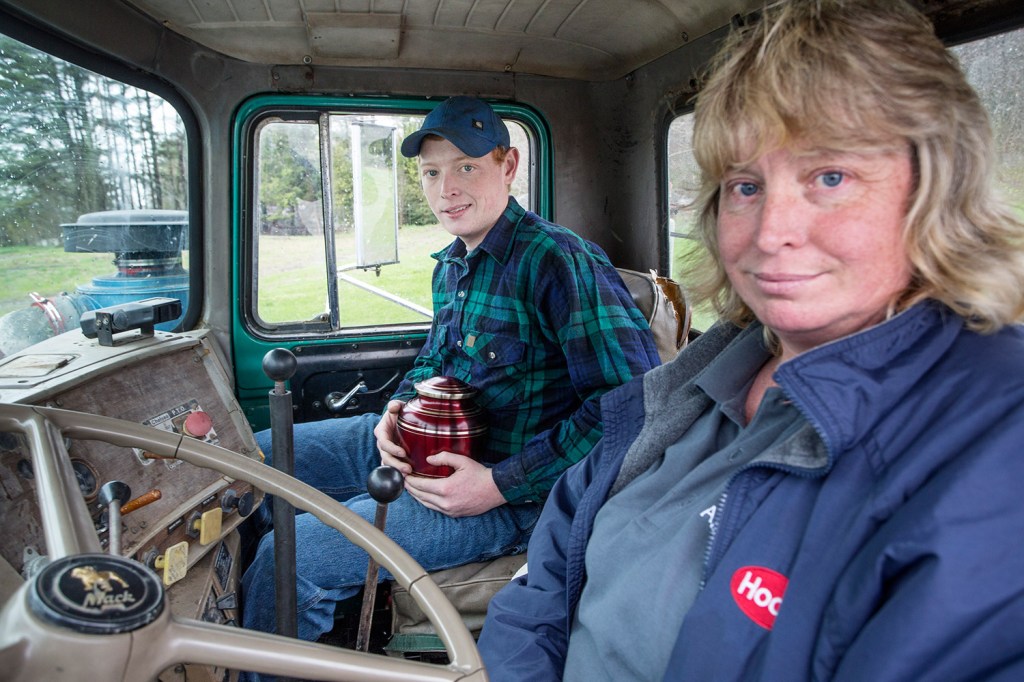
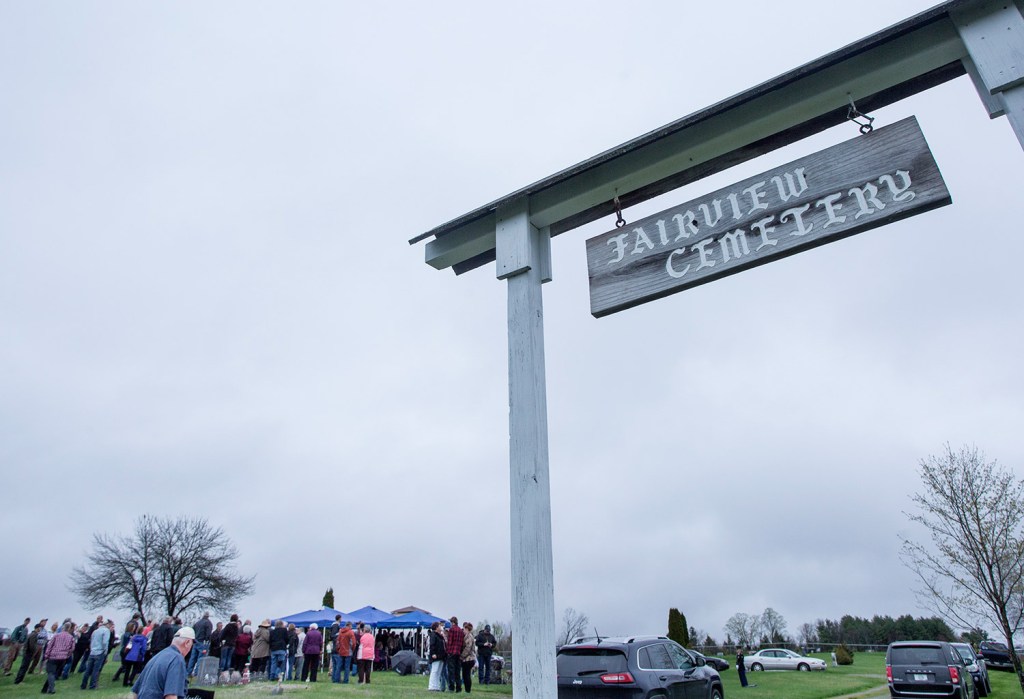
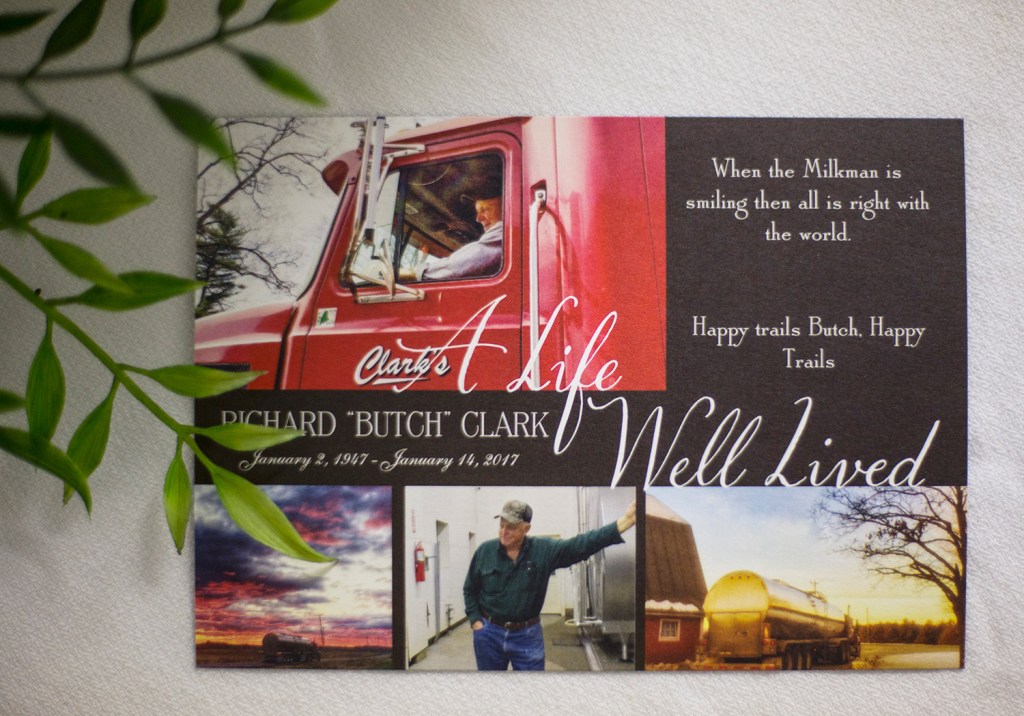
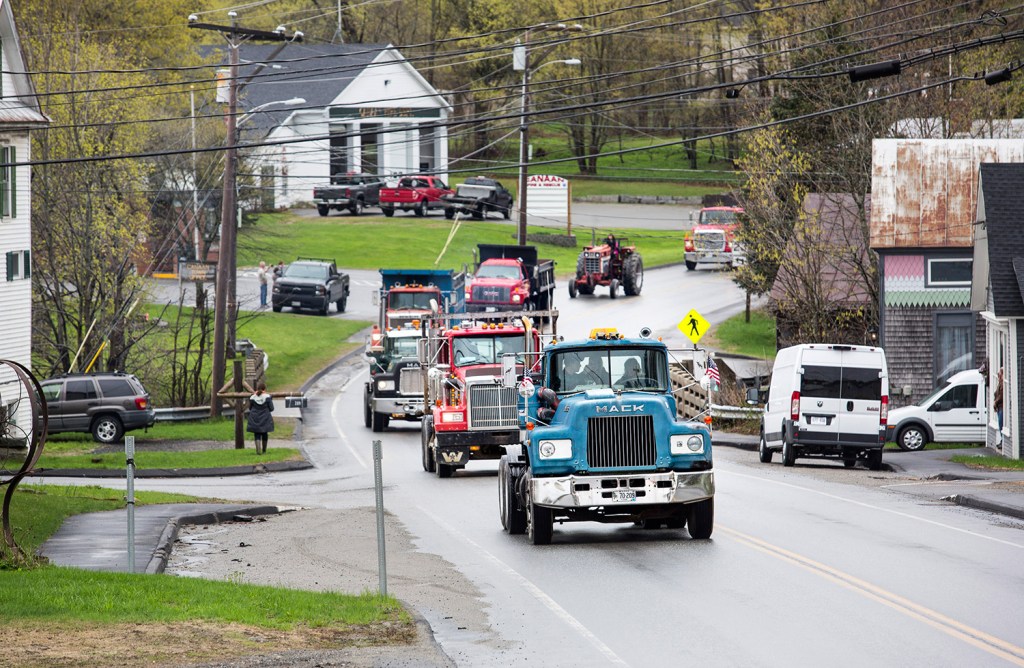
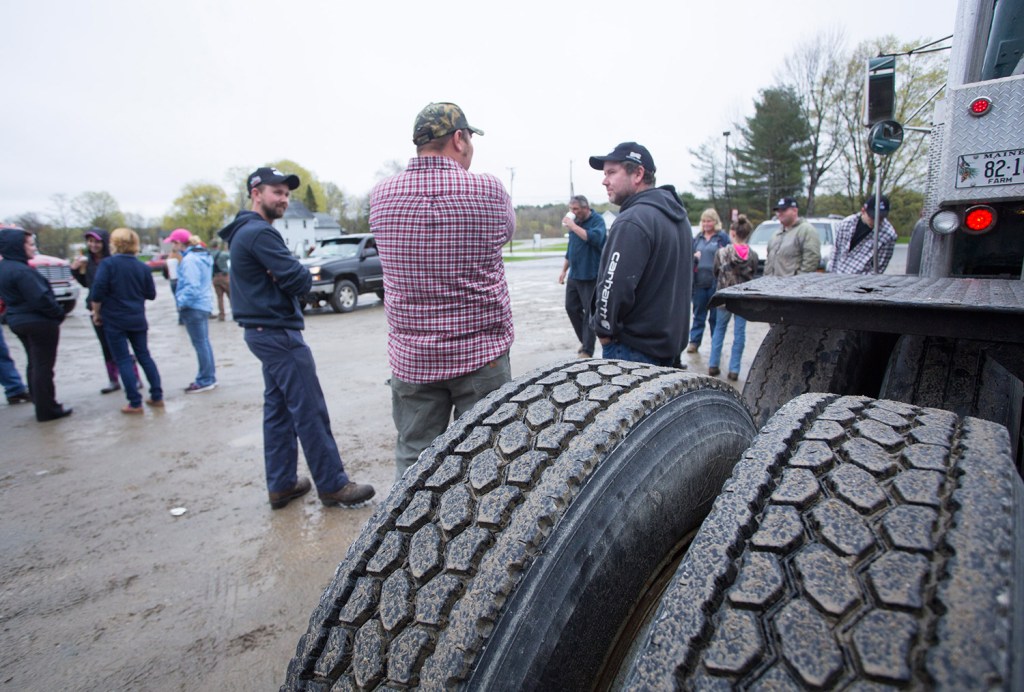
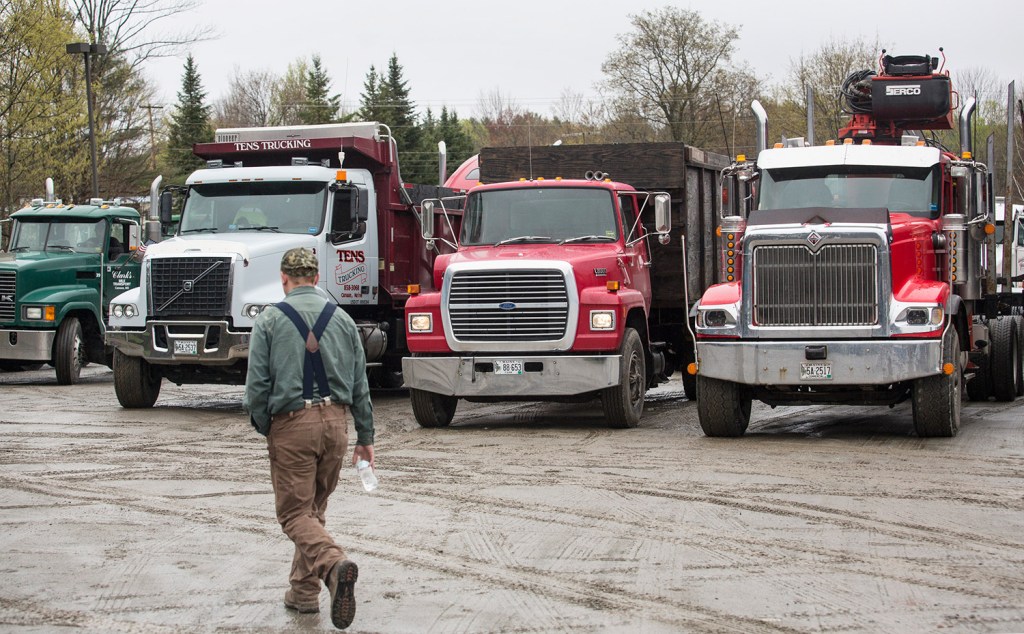
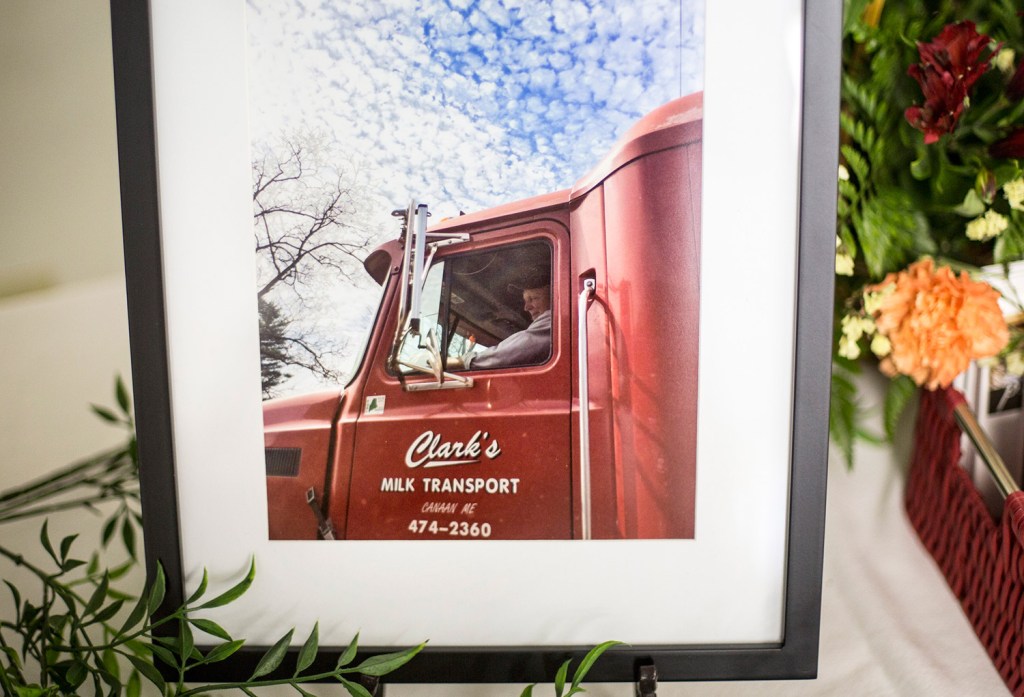
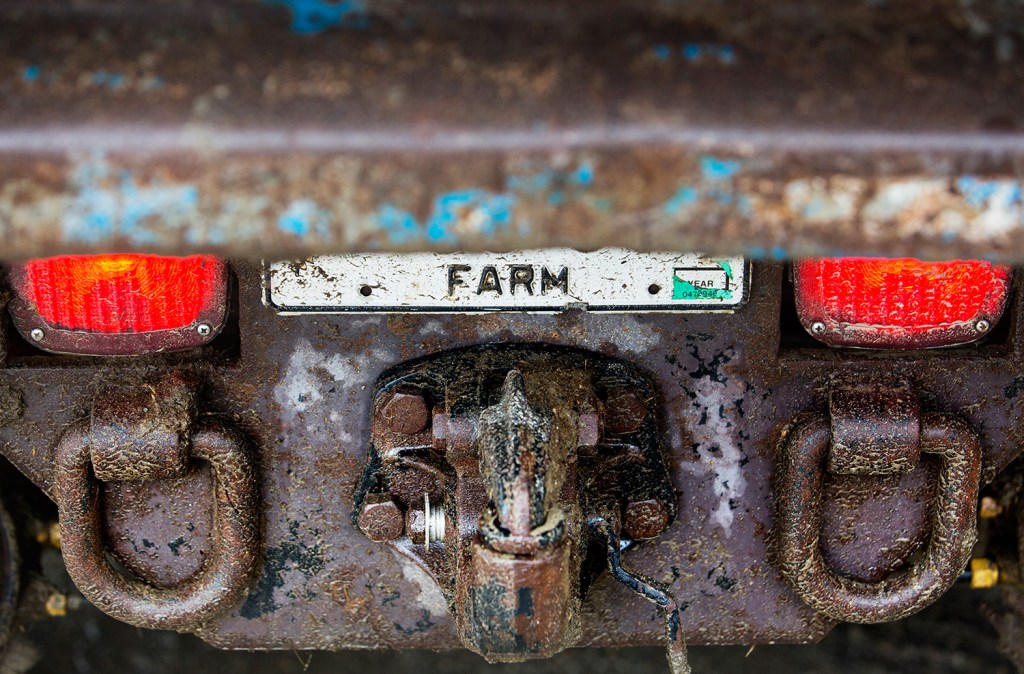

Success. Please wait for the page to reload. If the page does not reload within 5 seconds, please refresh the page.
Enter your email and password to access comments.
Hi, to comment on stories you must . This profile is in addition to your subscription and website login.
Already have a commenting profile? .
Invalid username/password.
Please check your email to confirm and complete your registration.
Only subscribers are eligible to post comments. Please subscribe or login first for digital access. Here’s why.
Use the form below to reset your password. When you've submitted your account email, we will send an email with a reset code.